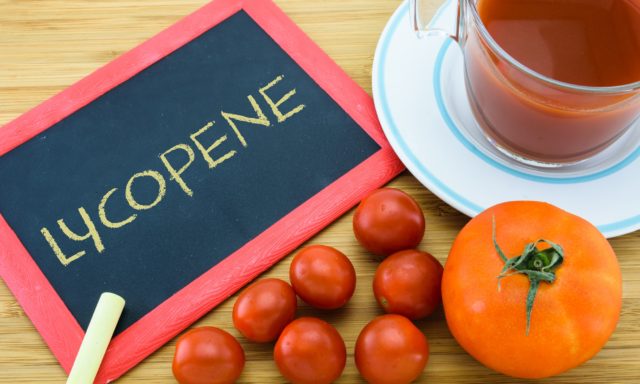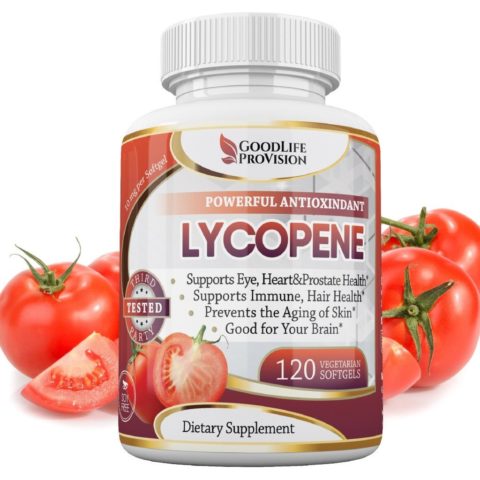Content
The human body needs lycopene as much as vitamins and minerals. It is a carotenoid pigment that gives plants their characteristic color. Its antioxidant properties improve vascular elasticity and slow down the aging process.
What is lycopene
Lycopene is a water-insoluble carotenoid pigment. It is found in most plants and red fruits. The main function of the element is to protect against ultraviolet radiation and oxidative processes. The substance enters the human body as part of food. It is not developed on its own. The best assimilation of the substance is observed when used together with foods containing fats.
The pharmaceutical industry uses lycopene, extracted from plants through biotechnological synthesis. With a lack of a substance in the body, cardiovascular pathologies can develop. They are eliminated with the help of special biological additives.
Why does the body need lycopene?
Human needs lycopene for its antioxidant properties. It significantly reduces markers of oxidative stress. The role of a substance in the body is to neutralize free radicals. Due to this, it reduces the risk of developing pathological neoplasms and slows down the aging process of all organs. It is needed by people of mature age for the prevention of serious diseases.
Along with this, the beneficial element protects the digestive organs from the inflammatory process. An important ability is the transformation of bad cholesterol into good one. The body needs a carotenoid pigment for the following purposes:
- preventing the destruction of the DNA structure;
- conversion to vitamin A;
- neutralization of free radicals;
- anti-inflammatory effect;
- normalization of reproductive functions;
- antifungal effect;
- protection from ultraviolet rays.
The human body needs lycopene to maintain its acid-base balance. It reliably protects the heart, blood vessels and liver. In addition, food with its content has a positive effect on the condition of the skin. Like other carotenoids, lycopene protects the lens of the eye from the harmful effects of the sun.
Why does a man's body need lycopene
The beneficial properties of lycopene are especially pronounced in relation to men. The substance reliably protects the prostate gland from damage and inflammation. Thanks to its antioxidant action, it prevents the development of prostate cancer. The element is also needed to have a positive effect on erectile function.
In infertility, lycopene is needed to improve sperm motility. To achieve the desired result, men are advised to consume tomatoes. But the most successful solution would be to take vitamin and mineral complexes containing carotenoid pigments. They are taken strictly according to the scheme selected by the doctor.As a result of treatment, the composition of the semen improves and the volume of the ejaculate increases.
Why does a woman's body need lycopene
Lycopene also has a beneficial effect on the work of the female body. First of all, it reduces the likelihood of developing mastopathy and cervical cancer. Pregnant women of mature age need it to prevent fetal hypoxia and preeclampsia.

During menopause, a useful substance is used to slow down the aging process. It accelerates collagen production and protects the skin from sun damage. It is also believed that the element prevents clogging of blood vessels by cholesterol plaques. This helps to avoid damaging them. The female body also needs a useful substance in the presence of skin diseases. It effectively copes with the manifestation of psoriasis and dermatitis.
The benefits and harms of lycopene
Most often, foods containing lycopene are added to the diet in order to combat cardiovascular pathologies and to prevent cancer. In addition, it is needed for the skin. Regular consumption of foods with carotenoid pigments reduces the number of wrinkles and prevents them from appearing in the future. They strengthen internal organs and restore cholesterol metabolism. Diet therapy is needed to treat the following diseases:
- coronary heart disease;
- atherosclerosis;
- metabolic disease;
- fungal diseases;
- immunodeficiency;
- dysbiosis.
Medical research has shown that people who regularly consume foods with carotenoid pigments are less likely to experience diseases accompanied by an inflammatory process. It is also believed that the beneficial element greatly facilitates the course of chronic ailments.
When ingested, lycopene is converted to vitamin A. It is known for its antioxidant properties. Vitamin inhibits aging processes and promotes the production of melatonin. It is easily absorbed by the body and has tremendous health benefits. When used in moderation, the element is not capable of causing harm. If taken without food containing fat, you may experience digestive upset. In rare cases, the substance acts as an allergen.
What foods contain lycopene
Natural sources of lycopene are much better than drugs. Their advantage lies in the low likelihood of side effects. Many people know that lycopene is found in tomatoes. But it is also present in the following products:
- swede;
- guava;
- mango;
- Red pepper;
- tomato paste;
- rosehip;
- persimmon;
- carrot;
- feijoa;
- watermelon.
Contraindications to foods containing lycopene
Foods containing large amounts of lycopene have a number of contraindications. The substance is not toxic, so it brings harm only if the nuances of its use are not taken into account. Contraindications include:
- an allergic reaction;
- pregnancy;
- lactation period;
- cholelithiasis;
- age under 12.

Experts oppose the lycopene diet, which has become popular in recent years. It involves avoiding fatty foods when adding foods with lycopene to the diet. Fat is essential to dissolve it. In its absence, the risk of developing gallbladder diseases increases. That is why this diet is dangerous to health.
Products with carotenoid pigments are not recommended for consumption and smokers. When exposed to cigarette smoke, it oxidizes. This increases the likelihood of malignant tumors forming.
Lycopene content table in foods
Knowing which foods have the highest amount of lycopene, you can make the most successful diet:
|
The product's name |
Lycopene content (mg / 100 g) |
|
grapefruit |
1,419 |
|
mango |
0,003 |
|
swede |
0,14 |
|
carrot |
0,001 |
|
feijoa |
0,005 |
|
rose hip |
6,8 |
|
watermelon |
4,5 |
|
guava |
5,204 |
|
Red pepper |
1,32 |
|
a tomato |
2,57 |
To satisfy the daily need for a useful element, it is enough to eat 4 tomatoes or drink 2 tbsp. tomato juice. However, it must be remembered that in such an amount, the product can provoke heartburn.
Rules for eating foods rich in lycopene
The optimal daily dosage of lycopene is 5-10 mg. But with an average diet, the substance enters the body in a volume of no more than 0.6-1.6 mg. The process of its assimilation directly depends on the presence of fatty foods in the diet. The most suitable way to cook food with lycopene is frying in vegetable oil. If, against the background of the introduction of new products, the stool is disturbed, it means that the useful element is not completely absorbed by the digestive system.
An allergic reaction to a carotenoid is often accompanied by a skin rash and itching. In some cases, tearing and runny nose develop. These symptoms indicate the need to revise the diet.
Useful Tips
Like other beneficial elements, lycopene has a ton of nuances in its use. They need to be taken into account in order to avoid unwanted side effects. When eating food with its content, it is recommended to consider the following tips:
- honey enhances the beneficial properties of carotenoid pigment when consumed together;
- after heat treatment, the amount of useful substance does not decrease;
- natural sources of the substance are especially needed after suffering an illness and in winter;
- fatty foods are needed by the element for complete assimilation;
- it is permissible to practice fasting days on products with lycopene;
- biological supplements containing a substance should be taken only after consultation with a doctor;
- if an allergic reaction occurs, you need to take an antihistamine and change the diet;
- biological additives containing the element should not be taken for more than 1 month.
Conclusion
The body needs lycopene on a daily basis. He takes part in vital processes and supports the work of the main organs. But when it enters the body in large quantities, the element can have a harmful effect.

